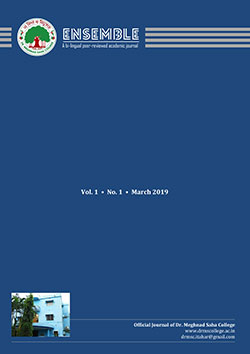Level of Autonomy among Muslim Women by Marital Status and Place of Residence in Birbhum District of West Bengal.
Abstract
The paper attempts to examine the level of autonomy among Muslim women in the Birbhum District of West Bengal. Further, it also tries to analyse the variation in the level of autonomy based on marital status and place of residence. The study is based on a primary survey. 12 villages and 4 municipal areas of Birbhum district have been selected and a sample of 664 has been surveyed based on stratified random sampling. Further, focus group discussion has also been conducted in the study area. To examine the level of autonomy among Muslim women, autonomy index has been computed. Three parameters i.e. gender space discrimination, mobility and decision making authority have been considered in computing autonomy index. The finding indicates the significant variation in the level of autonomy by marital status and place of residence. Unmarried women are less discriminated and are allowed to go out from home more frequently as compared to married women in both rural and urban areas. However, in the case of decision-making authority, married women enjoy more autonomy but it is significant only in rural areas. Thus, the paper highlights that the increase in the educational level and exposure to the outer world will help in improving the level of autonomy among Muslim women. Further, it also suggests that there is a need for a specific empowerment programme in the study area so that they could be enabled to challenge the traditional norms and access community resources.
Keywords: gender space discrimination, mobility, decision making authority
ensemble-2021-0301-a003_20 Aug 2021
https://doi.org/10.37948/ensemble-2021-0301-a003
Views: 1090



